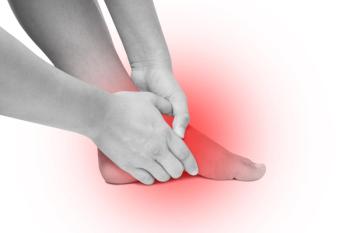
Using Krill Oil as a Natural Treatment for Osteoarthritis Pain
Like fish oils, krill oil also contains omega-3 fatty acids and has a comparably better bioavailability than fish oil. Additionally, krill oil contains a potent antioxidant known as astaxanthin, which may reduce inflammation resulting from free radicals.
Knee osteoarthritis is a common condition that affects millions of people worldwide. It causes pain, stiffness and reduced mobility. Traditional treatments, such as non-steroidal anti-inflammatories, often have side effects and limitations, leading many to explore natural solutions like krill oil to affect osteoarthritis pathogenesis.
Most pain relief from traditional therapies comes from reducing inflammation arising from excess synovial fluid and synovitis, often triggering more significant pain and structural abnormalities in knee osteoarthritis. Since effusion-synovitis can be altered, decreasing inflammation could delay harmful structural changes, leading to improved outcomes in osteoarthritis.
Building on the abundance of research centered around omega-3- polyunsaturated fatty acids and positive effects on inflammation, researchers investigated krill oil's potential for managing knee pain in a
Like fish oils, krill oil also contains omega-3 fatty acids and has a comparably better bioavailability than fish oil. Additionally, krill oil contains a potent antioxidant known as astaxanthin, which may reduce inflammation resulting from free radicals.
The KARAOKE trial was conducted over 24 weeks to investigate the effects of krill oil supplementation on knee pain in individuals with knee osteoarthritis. Two hundred sixty-two adults with knee osteoarthritis and significant knee pain were included. Participants were randomized to receive either 2 grams per day of krill oil or a placebo for 24 weeks.
The primary outcome measured was the change in knee pain using a visual analog scale (VAS) over the study period. Several secondary outcomes were also measured in this study, including the change in effusion-synovitis volume on MRI at 24-week follow-up, changes in study knee pain at 4-, 8-, 12-, 16-, and 20-week follow-up, and changes in hand and back pain VAS scores at all time points.
The study found that krill oil supplementation did not improve knee pain compared to the placebo group. The trial results showed that 2 grams per day of krill oil supplementation did not demonstrate a significant difference against placebo as measured on the VAS over 24 weeks.
Adherence to the supplementation was high, with mean adherence rates of 99% in the krill oil group and 96% in the placebo group.
Adverse events were reported in both the krill oil and placebo groups, with musculoskeletal and connective tissue disorders being the most common. Additional outcomes such as lower limb strength, blood markers, and quality of life measures were also assessed during the study.
The findings suggest that krill oil may not effectively treat knee pain in this population. Interestingly, the placebo group showed a significant reduction in effusion-synovitis volume compared to the krill oil group, and krill oil significantly improved triglyceride levels compared to placebo over 12 weeks. However, there were no significant differences between the krill oil and placebo groups regarding other study outcomes like pain and secondary outcomes.
The authors acknowledge the study's limitations, including the possibility of an insufficient krill oil dose, limitations in MRI measurement, lack of generalizability and the absence of dietary omega-3 intake assessment. They emphasized the need for further research in this area.
Newsletter
Get the latest industry news, event updates, and more from Managed healthcare Executive.

























